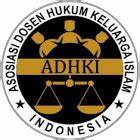Analisis Hukum Perdata Islam mengenai Wasiat Terhadap Putusan Mahkamah Agung Nomor: 379 K/AG/2009
DOI:
https://doi.org/10.29240/berasan.v2i2.9216Keywords:
Testament, Testament is null and voidAbstract
Downloads
References
Ali, Muhammad. “Wasiat Menurut Perspektif Hukum Islam.†Jurnal Hukum Islam. 2016.
Alam, Andi Syamsu. Mahkamah Agung RI Putusan MA Nomor: 379 K/AG/2009. Direktori Putusan Mahkamah Agung Republik Indonesia. 2009.
Darmawan, Nurmawan, Fiqih Wasiat, Jakarta: Gramedia, 2020.
Jarchosi, Achmad. Pelaksanaan Wasiat Wajibah. ADHKI: Journal of Islamic Family Law. Volume 2. No.1. Juni. 2020.
Ja’far, A. Khumedi, Hukum Perdata Islam diindonesia: Aspek Hukum Keluarga dan Bisnis, Gemilang Publisher: Surabaya, 2016.
Nugraheni, Destri Budi dkk. Pengaturan Dan Implementasi Wasiat Wajibah di Indonesia. Mimbar Hukum. Vol. 22. No. 2. Juni. 2010.
Nasution, Bahder Johan dkk. Hukum Perdata Islam: Kompetensi Peradilan Agama Tentang Perkawinan, Waris, Wasiat, Hibah, wakaf dan Shodaqah. Bandung: Mandar Maju. 1997.
Ramadhani, Andre Gema dkk. Pelaksanaan Wasiat Wajibah Menurut Kompilasi Hukum Islam Dalam Praktek Pengadilan Agama Sambas. NOTARIUS, Vol. 13, No. 1. 2020.
Suparman, Maman. Hukum Waris Perdata. Jakarta: Sinar Grafika. 2015.
Sanjaya, Umar Haris. Kedudukan Surat Wasiat Terhadap Harta Warisan Yang Belum di Bagikan Kepada Ahli Waris. Jurnal Yuridis. Vol. 5. No. 1. Juni. 2018.
Downloads
Published
Issue
Section
Citation Check
License
Authors who publish with Berasan: Journal of Islamic Civil Law agree to the following terms:
- Authors retain copyright and grant the journal right of first publication with the work simultaneously licensed under a Creative Commons Attribution-NonCommercial-ShareAlike 4.0 International License (CC BY-NC-SA 4.0) that allows others to share the work with an acknowledgment of the work's authorship and initial publication in this journal.
- Authors are able to enter into separate, additional contractual arrangements for the non-exclusive distribution of the journal's published version of the work (e.g., post it to an institutional repository or publish it in a book), with an acknowledgment of its initial publication in this journal.
- Authors are permitted and encouraged to post their work online (e.g., in institutional repositories or on their website) prior to and during the submission process, as it can lead to productive exchanges, as well as earlier and greater citation of published work (See The Effect of Open Access).









